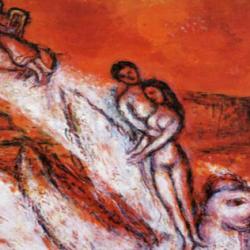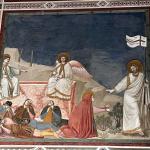Iain Provan suggests the following interpretation of Ecclesiastes 8:12-13: “The clear implication of his thinking must be that there is some ‘time’ beyond the ‘times’ of life in which wrongs can be righted and imbalanced corrected; yet as we have seen Qohelet is agnostic about life after death (3:18-21) . . . . So how is justice to be done? Qohelet never explains himself. He simply expresses his confidence in the moral nature of the universe while noting various data that bring this into apparent question. Unable to resolve the puzzle himself, he then characteristically advocates that the reader get on with life and not worry too much about the details, which lie with God.”
“Agnostic” is not an accurate description; it was clear from the time of Abraham that Yahweh of Israel is a God brings life from death. But, Provan is correct that Solomon does not give any clear indication of the basis for his confidence in the justice of God. Ecclesiastes thus raises the question that Paul answers is Romans, the question of God’s righteousness. Even with the gospel, we are still often left with Solomon, puzzling over the prosperity of the wicked and trusting that God will resolve things even when we cannot see how they can be resolved. But the gospel is a demonstration of God’s determination to do justice in the world.















